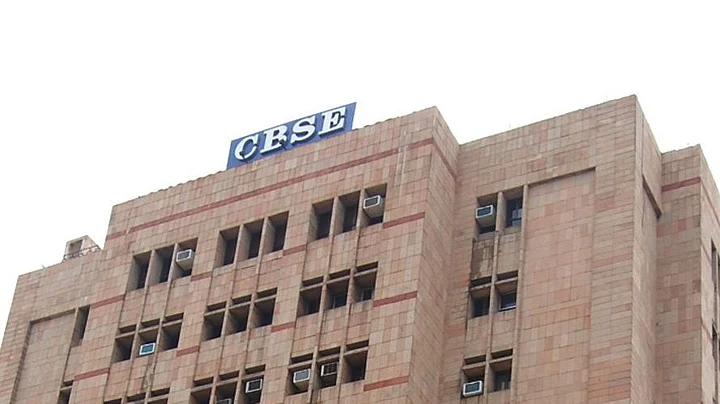Vineet Joshi, Additional Secretary in the Ministry of Education, was on Monday, 14 February, appointed as the new chairman of the Central Board of Secondary Education (CBSE).
He will be succeeding Manoj Ahuja as the chairperson. The development came soon after Manoj Ahuja was appointed as the OSD in the Department of Agriculture and Farmers Welfare.
Joshi had previously served as the CBSE Chairman.
An IAS officer of the 1992 batch of Manipur cadre, Joshi is also the Director General of the National Testing Agency (NTA).
As reported by PTI, a senior MoE official said "Consequent upon relieving Manoj Ahuja from the post of CBSE chairman, the charge has been assigned to Vineet Joshi, Additional Secretary, Ministry of Education, in addition to his existing assignments.”
His Background
Joshi did his schooling from Allahabad, following which he did his graduation in mechanical engineering from IIT Kanpur. He did his Master’s in Business Administration from the Indian Institute of Foreign Trade.
He served as the private secretary in 1999 under the Ministry of Youth Affairs and Sports. He served as the private secretary in the Ministry of Food Processing Industries from 2000 to 2001. In 2018, he was appointed to head the NTA for five years.
His First Tenure as CBSE Chairperson
In his tenure as the CBSE Chairperson, Joshi had introduced major changes such as the Continuous Comprehensive Evaluation (CCE) and making the Class X board examination optional. He is recognised for introducing CCE. Both of these changes were later been overturned by the BJP government at the Centre.
In an interview with The Hindu in 2016, Joshi spoke about reforms in the process of assessment and the CCE scheme. He spoke about how the reforms encompass the shift from marking to the grading system.
He told the newspaper, “The CCE guidelines describe ‘continuous' in terms of regular assessments, frequency of unit-testing, analysis of learning gaps, applying corrective measures, retesting and giving feedback to teachers and students for their self-evaluation. ‘Comprehensive,' on the other hand, attempts to cover both the scholastic and co-scholastic aspects of a student's growth and development. Both these aspects of the evaluation process are assessed through formative and summative assessments from Class VI to Class X.”
He had also spoken about giving more options to students expanding the scope for XI and XII students by introducing subjects such as media studies, design, retail, and logistics.
(Sources: PTI, The Indian Express, The Hindu)
(At The Quint, we question everything. Play an active role in shaping our journalism by becoming a member today.)
